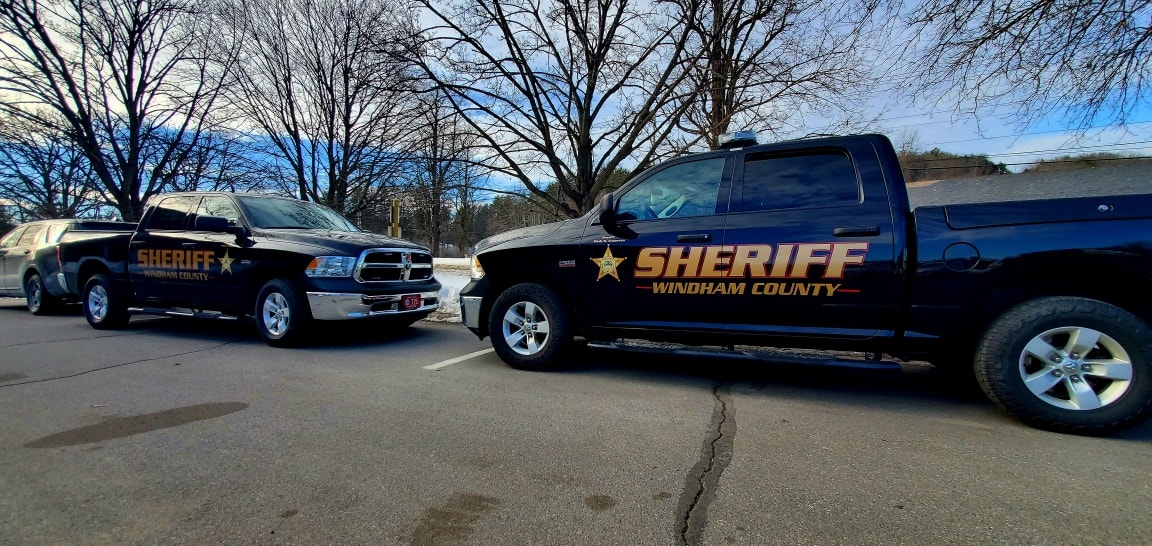To report a crime, please contact your local police agency. For emergencies, call 911.
Our Staff
Awards
Medal of Valor
The Medal of Valor may be awarded to a sworn deputy who, in the performance of his/her duty in a situation of extreme danger to the Deputy, and where strong possibility exists that serious injury or death to the Deputy at the time, and the act of valor, bravery or courage is beyond normal expectations.
Sheriff's Cross
The Sheriff’s Cross shall be awarded to a sworn deputy, who in the performance of his/her duty was killed or sustained permanent serious bodily injury.
Distinguished Service Medal
The Distinguished Service Medal may be awarded to a sworn deputy who intelligently performs acts of outstanding personal bravery at imminent personal hazard to life under circumstances demonstrating a disregard of personal consequences.
Deputy Mark H. Dooley Award
The Deputy Mark H. Dooley Award may be awarded to a sworn deputy who demonstrates dedication, compassion, enthusiasm and initiative in policing. This award is limited to one deputy in a calendar year.
Sheriff's Star
The Sheriff’s Star shall be awarded to any employee upon honorable separation, including death, which has accumulated 20 or more years of service with the Windham County Sheriff’s Office. The Sheriff’s Star may be awarded posthumously to a deputy who dies while employed by the Office, regardless of years of service.
Life Saving Award
The Life Saving Award shall be awarded to any employee who provides, or is directly responsible for, life saving actions for a condition of which a high probability exists that a person will suffer serious bodily injury or death without the employee’s intervention.
Deputy of the Year
The Deputy of the Year shall be selected based on excellent, unusual or continued dedication to the Office and to Windham County, as recognized by superiors, peers and the public as measured across the calendar year.
Dispatcher of the Year
The Dispatcher of the Year shall be selected based on excellent, unusual or continued dedication to the Department and to Windham County, as recognized by superiors, peers and the public as measured across the calendar year.
Sheriff's Merit Award
The Sheriff's Merit Award shall be awarded to a sworn deputy that has demonstrated unusual devotion to duty or valor, over a continual and recognized period of time.
Volunteer Service Award
The Volunteer Service Award shall be awarded to the top 10% of employees who volunteers their time in the performance of a coordinated Office event.
Distinguished Accomplishment
The Distinguished Accomplishment award shall be awarded to any employee, who provides an outstanding or meritorious service, product or program that reflects positively on the Office that demonstrates unusual thoroughness, conscientiousness, determination and initiative. It may be awarded to an employee who has performed an efficient and valuable service to the Office, either in carrying out a specific task or in the performance of general duties over an extended period of time, that wouldn’t be eligible for a higher award.
Exemplary Service Award
The Exemplary Service Award shall be awarded to any employee, who demonstrates exemplary service in job performance, citizen contacts, and overall attitude and has three occurrences or less of lost time in a year (excluding injured or maternity time) and no sustained disciplinary action for a period of two years.
Distinguished Employee Award
The Distinguished Employee Award is given to an employee who demonstrates unusual flexibility, positive attitude, commitment and professionalism to the Windham County Sheriff's Office over a continued period of time.
Five Year Service Award
Awarded to employees who have worked for the Windham County Sheriff's Office for five continuous years.
Ten Year Service Award
Awarded to employees who have worked for the Windham County Sheriff's Office for ten continuous years.
Fifteen Year Service Award
Awarded to employees who have worked for the Windham County Sheriff's Office for fifteen continuous years.
Twenty Year Service Award
Awarded to employees who have worked for the Windham County Sheriff's Office for twenty years.
Twenty Five Year Service Award
Awarded to employees who have worked for the Windham County Sheriff's Office for twenty five years.
Thirty Year Service Award
Awarded to employees who have worked for the Windham County Sheriff's Office for thirty years.
Thirty Five Year Service Award
Awarded to employees who have worked for the Windham County Sheriff's Office for thirty five years.
Fourty Year Service Award
Awarded to employees who have worked for the Windham County Sheriff's Office for forty years.



